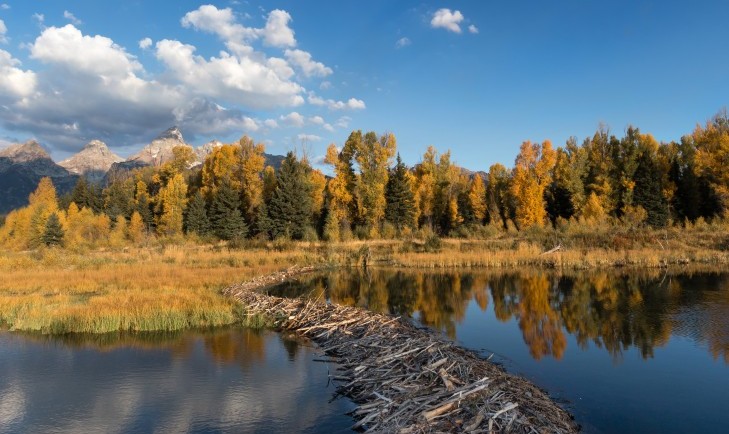03/28/25
LISTEN: learn how beavers are helping us mitigate disasters in WGA’s Out West podcast

The history of the West has always been defined by water. Long before settlers arrived, Indigenous peoples designed complex water management systems to cultivate the arid land. In the 19th and 20th centuries, large-scale engineering projects redistributed water across the West, enabling the region’s rapid growth. Today, western water resources are stretched thin, and as rivers and streams dry up, so too does the environmental resiliency that’s provided by healthy riparian zones.
To help address this issue, many western states are looking to beavers – long known as nature’s engineers – to ensure more water is retained on the landscape. New research suggests this will help restore biodiversity and mitigate the effects of prolonged drought, unexpected flooding, and catastrophic wildfires.
In this episode of Out West, WGA policy advisors Jonah Seifer and Zach Nowak spoke with beaver experts from around the region about how these aquatic rodents can help us restore balance to the West’s water systems.
For these discussions they were joined by Emily Fairfax, an ecohydrologist, beaver researcher, and Assistant Professor of Geography at the University of Minnesota; Chris Jordan, a Fisheries Biologist with NOAA’s Northwest Fisheries Science Center; Alexander Funk, the Director of Water Resources and Senior Counsel at the Theodore Roosevelt Conservation Partnership; Marshall Wolf, a Postdoctoral Research Associate at the Columbia River Inter-Tribal Fish Commission; and Jerry Altermatt, a habitat biologist with the Wyoming Game and Fish Department.
To listen, click the embedded player below. You can also find this episode of Out West on YouTube, Spotify, Apple Podcasts, and Podbean.